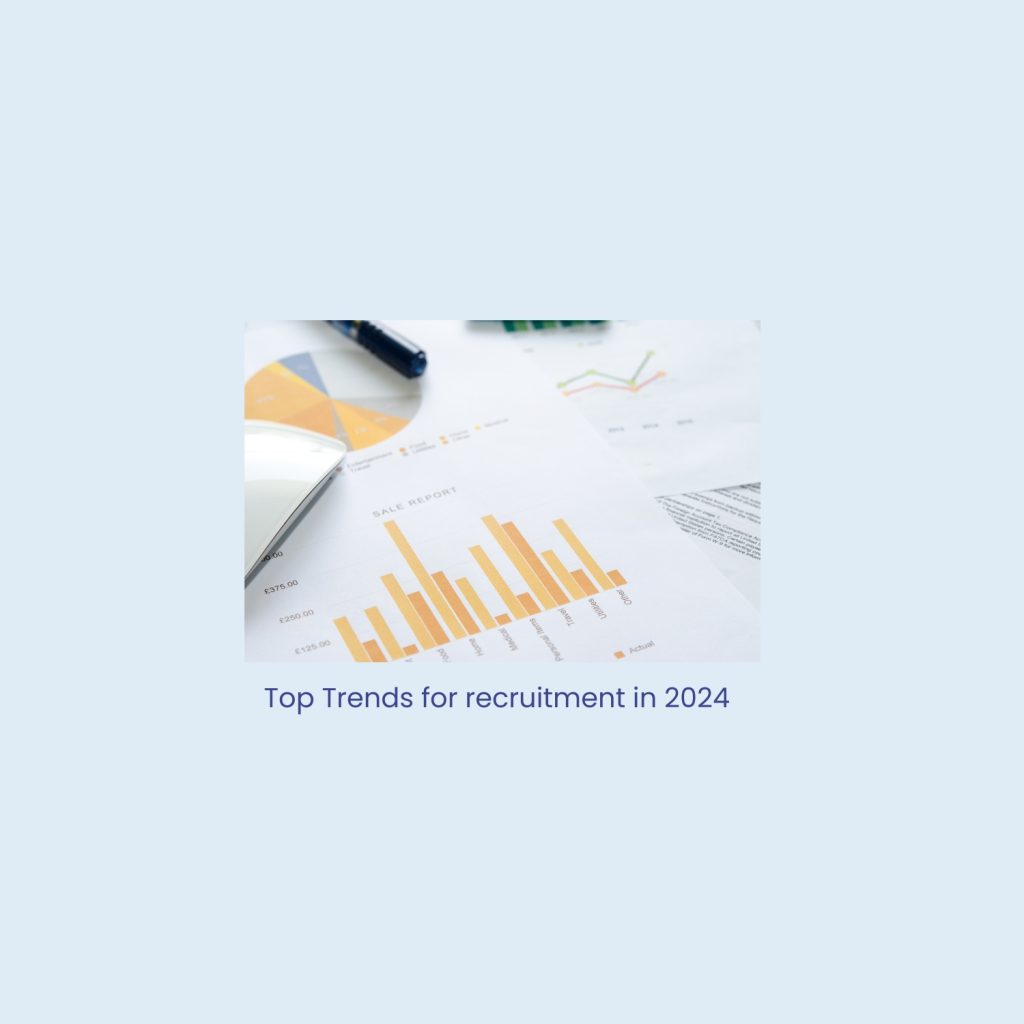The recruitment industry is poised for transformative change after years of pandemic-induced redundancies and hiring freezes. This pivotal moment marks a significant shift in how businesses approach talent acquisition, driven by evolving workplace dynamics and the introduction of advanced technologies.
But what are the top predictions for recruitment trends?
1/ AI will help to streamline the recruitment process.
AI is transforming the recruitment process by streamlining tasks and enhancing efficiency. Advanced AI-driven tools and algorithms allow recruiters to use data analytics to identify top talent, predict candidate success, and automate routine tasks like CV screening and candidate outreach.
Integrating AI not only speeds up hiring but also promotes unbiased decision-making, leading to a more inclusive and diverse workforce. AI improves the recruiter experience and optimises workflow. Currently, 62% of recruiters are optimistic about AI’s impact on recruitment, and it is anticipated this number will continue to rise.
2/ Flexibility within a role will be essential to fill it.
Remote and hybrid work models have quickly become the new standard, prompting organisations to adjust their strategies to support flexible working patterns. To attract and retain top talent, employers need to provide options like remote work, flexible schedules, and adaptable payroll structures. This not only broadens the talent pool by appealing to candidates from various locations, but also boosts employee satisfaction and retention.
Recent data from the Office for National Statistics (ONS) indicates positive vacancy growth in the last quarter in sectors such as Administration, IT, and Construction, suggesting a broader trend towards flexible work arrangements.
3/ Diversity, Equity, and Inclusion (DEI) will remain at the forefront of recruitment priorities.
Companies are actively working to cultivate a culture of belonging by adopting inclusive hiring practices, promoting representation at all organisational levels, and nurturing diverse talent. Embracing DEI principles enhances corporate reputation, drives innovation, encourages creativity, and boosts employee engagement.
4/ Attracting and retaining Gen Z will be one of the biggest challenges for recruiters.
By 2025, Gen Z will comprise a quarter of the global workforce, necessitating adaptations in the recruitment process to cater to this new generation. Gen Z is 36% more likely to prioritise advancement opportunities and 34% more likely to seek skill development compared to baby boomers.
Organisations are tailoring their strategies to resonate with Gen Z values, preferences, and career aspirations by offering personalised recruitment experiences and authentic employer branding initiatives. Key strategies include embracing digital platforms, engaging on social media, and utilising immersive technologies to capture Gen Z’s attention.
According to research, 62% of Gen Z use TikTok and spend most of their time on the app, highlighting the importance of a strong digital presence.
5/ Quality of hire will become a top priority.
In an era of heightened scrutiny and reduced hiring activity, the quality of hires has become a top priority for employers and recruiters. With subdued hiring, organisations are keenly aware of the need for every recruitment decision to be impactful.
Although 73% of recruiters prioritise skills-based hiring, recent trends show a disconnect between candidate skills and job requirements. To address this, recruiters must adopt holistic assessment methods that evaluate both hard and soft skills, ensuring each hire significantly contributes to organisational success and employee retention.






